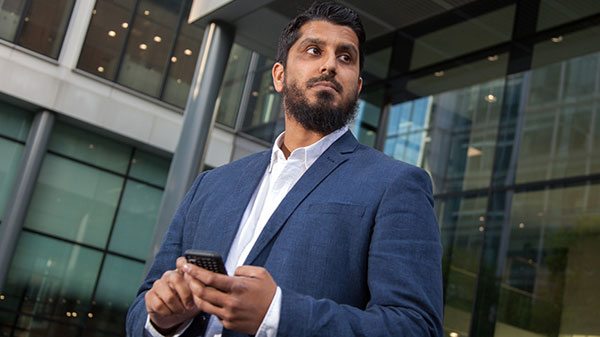
September 25, 2017; New York Magazine
What do you have on your laptop? Nonprofit leaders may have any number of reasons to want to keep the contents of their digital devices protected on behalf of those whom they serve. Consider, then, what you might do in this situation.
A London-based human rights NGO leader, Muhammad Rabbani, was convicted on terrorism charges for refusing last November to give Heathrow Airport security officials access to his mobile phone and laptop, citing privacy and civil rights. It remains to be seen whether he has succeeded in protecting his information; the Metropolitan Police retained Rabbani’s phone and laptop and are continuing efforts to examine the contents.
Rabbani, the international director for CAGE, was returning to London from a wedding in Qatar. He refused to surrender his phone PIN and laptop alphanumeric password. On Monday, in a one-day trial before Senior District Judge Emma Arbuthnot at Westminster Magistrates’ Court, Rabbani was found guilty of willfully obstructing police under the wide-ranging law used at ports to identify people involved in terrorism, the Terrorism Act 2000, Schedule 7.
Rabbani was given a “conditional discharge” for one year and a nominal fine of £620 to pay court costs. This means that Rabanni was found guilty but will receive no punishment other than the fine, provided he commits no further offense in the next 12 months. Rabanni faced up to three months in prison and a much heavier fine.
Rabbani and his lawyers plan to appeal to the high court against the conviction to continue their protest of this stop-and-search law. Meanwhile, this verdict affirms that UK police have the authority to demand access to personal electronic devices and that refusal to comply is a criminal offense.
Sign up for our free newsletters
Subscribe to NPQ's newsletters to have our top stories delivered directly to your inbox.
By signing up, you agree to our privacy policy and terms of use, and to receive messages from NPQ and our partners.
Rabbani is not new to this. Twice before, he has refused to give authorities access to his personal devices, but with no consequence. He has been the subject of port stops on more than 20 occasions.
CAGE, founded in 2003 to raise awareness for prisoners held at Guantanamo Bay and to monitor the way security operations and anti-terror laws affect the Muslim community, originally called itself CagePrisoners. Its website’s tagline reads, “Advocate for due process, the rule of law and an end to the injustices of the War on Terror.”
While in Qatar, Rabanni met someone alleged to have been tortured in the United States. Rabbani’s laptop and cell phone apparently held thousands of documents on their way to British lawyers. Journalists and lawyers cannot have their personal devices removed and accessed without a court order, but members of NGOs are not afforded any exemptions under Schedule 7.
NPQ has addressed the issue of U.S. government authorities gaining access to password-protected personal devices. The legality of being forced to provide device passwords when crossing the U.S. border is unclear.
Is privacy more important than security? Today, much of our personal information is online. Our times are also marked by a rising surveillance state. These facts give immense importance to the question of how to balance competing claims of privacy and security. The cases for and against personal encryption and government access to personal devices will not be resolved anytime soon.—Jim Schaffer













